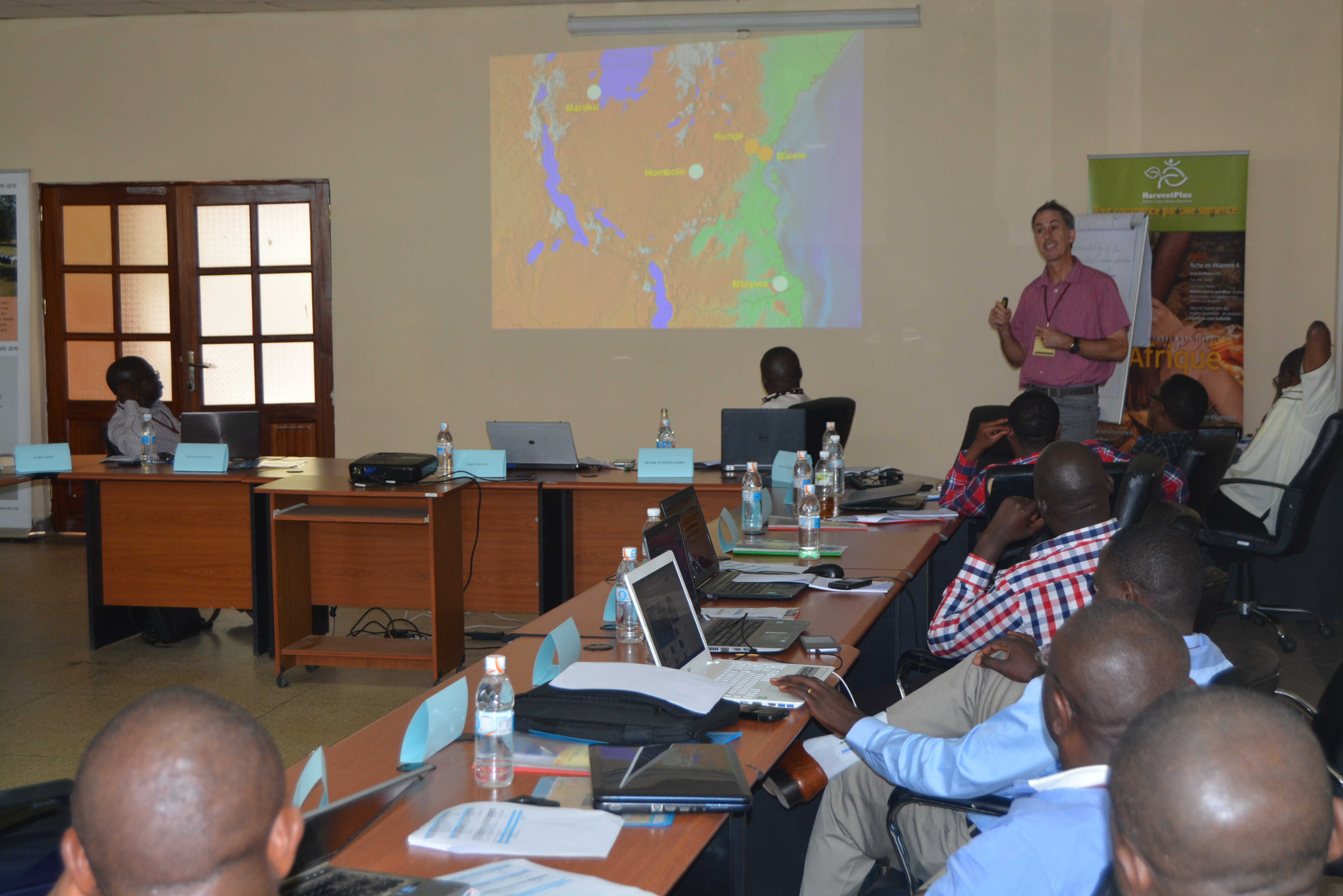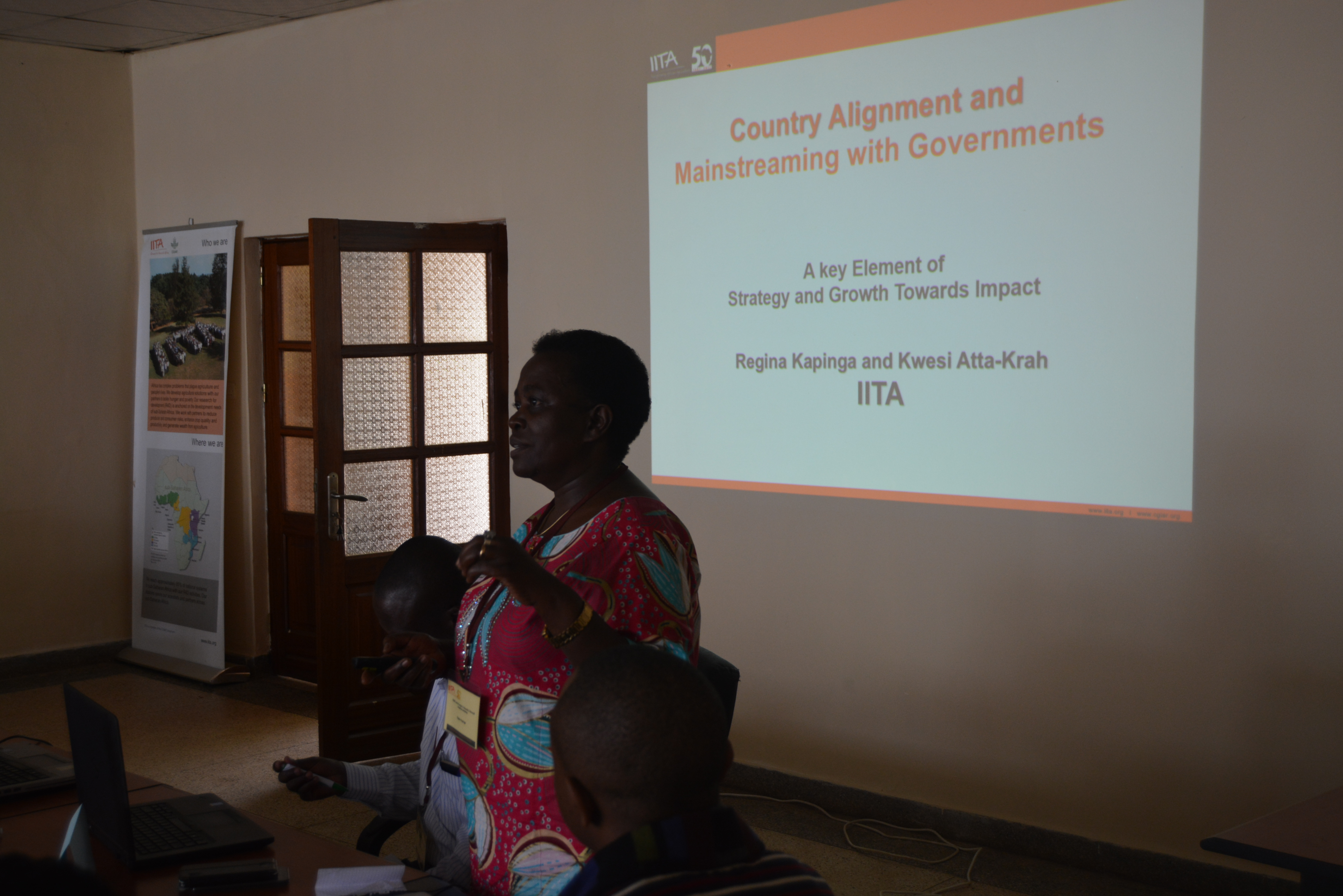By Nsimire Mireille
The International Institute of Tropical Agriculture (IITA) in partnership with Institute of Agricultural Science of Burundi (ISABU) and Rwanda Agriculture Board (RAB) have launched a new project titled ‘Fighting Cassava Brown Streak Disease and Cassava Mosaic Disease through the deployment of new resistant germplasm and clean seed in Rwanda and Burundi’.
The Cassava Brown Streak Disease (CBSD) and Cassava Mosaic Disease (CMD) are a major threat to cassava production in both Burundi and the eastern part of the neighbouring DRC. Of concern is the CBSD which was reported in the region in 2009 and is spreading rapidly.
The four-year project seeks to increase cassava productivity in Rwanda and Burundi through the development and deployment of CBSD/CMD resistant cassava varieties, as well as establishing a system to produce and disseminate high quality and virus-tested planting materials to farmers. The project is funded by the International Fund for Agricultural Development (IFAD) and led by IITA with the national cassava research programs at ISABU and RAB, from Burundi and Rwanda respectively as the major partners.
The launch workshop brought together stakeholders from the two countries to get to know each other, and to understand the project better and was held at IITA-Kalambo station in Bukavu from 15 – 18 May 2017. It was officiated by the regional hub director, Dr. Bernard Vanlauwe who was represented by the officer in charge of IITA- Kalambo station, Dr. Chris Okafor.
Speaking at the workshop, Silver Tumwegamire, the project leader, said the expected outcomes of the project in the two countries included a 50% increase in cassava productivity for 20,000 cassava farmers through the introduction of high yielding and disease-resistant varieties, and establishing a sustainable system for dissemination of certified early generation seed (pre-basic and basic) of the best varieties.
The project builds on the experiences and lessons from the just concluded New Cassava Varieties and Clean Seeds to combat CMD and CBSD project (5CP in short) implemented in five countries in Eastern and Southern Africa. It will make use of the new improved cassava varieties selected under the 5CP project that showed high levels of tolerance to the two viral diseases.
The meeting also brought participants from other IITA led projects including the 5CP and Action to Control Cassava Brown Streak Disease in the Democratic Republic of Congo (CBSD-DRC)] to share their experiences and lessons to allow the new project team to learn from them and incorporate the lessons in their project as well to identify areas of synergies. The CBSD-DRC is led by Dr. Nzola Mahungu who is also the country coordinator for DRC.
James Legg, IITA virologist shared experiences and lessons on the development of a pilot clean seeds’ system for cassava in Tanzania under 5CP. He outlined the requirements and approaches of developing clean seed systems to produce virus-tested cassava pre-basic’ seed.
Regina Kapinga, Head of Advocacy and Resource Mobilization at IITA gave a presentation on the importance of ensuring the project was aligned and mainstreamed to the priorities of the two countries for greater efficiency, effectiveness and impact!
“We need to ensure our activities are relevant to the countries we work in. we also need to systematically track the progress we are making in contributing towards the countries’ economic growth through agriculture,” Kapinga said.
Mahungu, CBSD-RDC project leader shared the objectives of the nearly similar project he was leading in DRC. This was to maintain sustainable cassava productivity through the development and promotion of appropriate cassava varieties, resistant to CBSD and other biotic constraints, and disseminate approaches for the integrated management of cassava diseases and pests to contribute to increased food availability, income generation and sustainable livelihoods. In addition, presented the one year work plan activities.
The workshop concluded with a visit to the virology Laboratory at IITA-Bukavu where Clerisse Casinga, a researcher at IITA – Kalambo shared with the participants a CBSD study conducted in D.R. Congo with supervision of IITA’s James Legg and Rudolph Shirima, in 2016.






No Comments